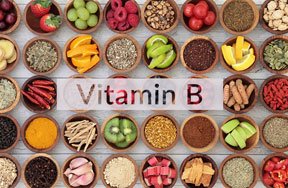Vitamin D may be one of the lesser known vitamins, but it's one of the most important. Read on for the 411 on this essential mineral.
Vitamin D - Why Is It Good For You?
Vitamin D is important in the growth, development and maintainance of strong, healthy bones. It works with other vitamins and minerals, such as calcium, to promote bone mineralization. Without vitamin D, bones can become thin, brittle or deformed. Kids who don't get enough vitamin D are at risk of getting rickets, a disease that affects bone growth and development. Adults with vitamin D deficiencies may get osteomalacia or osteoporosis, where bones become weak and brittle.

Vitamin D - What Foods Can It Be Found In?
In North America, milk, margarine, butter and cereals are fortified with vitamin D, which means it's added to them during production. Vitamin D can also be found in egg yolks, cod liver oil and fatty fish, such as salmon and mackerel. However, the most important source of vitamin D is the sun. When your body is exposed to ultra-violet (UV) rays from the sun, it triggers vitamin D synthesis in the skin. Although suncreens with an SPF of 8 or greater will block UV rays that produce vitamin D, it's still important to use sunscreen to help prevent skin cancer.
 Sources of Vitamin D
Sources of Vitamin D
Vitamin D - Did U Know?
- Vitamin D is commonly known as the sunshine vitamin.
- Bone growth and development is the most important during your childhood and teenage years. The recommended daily intake of vitamin D for kids and teens aged nine to 18 years old is 5 micrograms, or 0.005 mg.
- The need for vitamin D increases as peeps age.
- By definition, a vitamin is a substance that is required by the body, but is supplied in the diet since the body can't make it. That's why vitamin D isn't technically a vitamin because it can be produced by exposing your skin to sunlight.

































